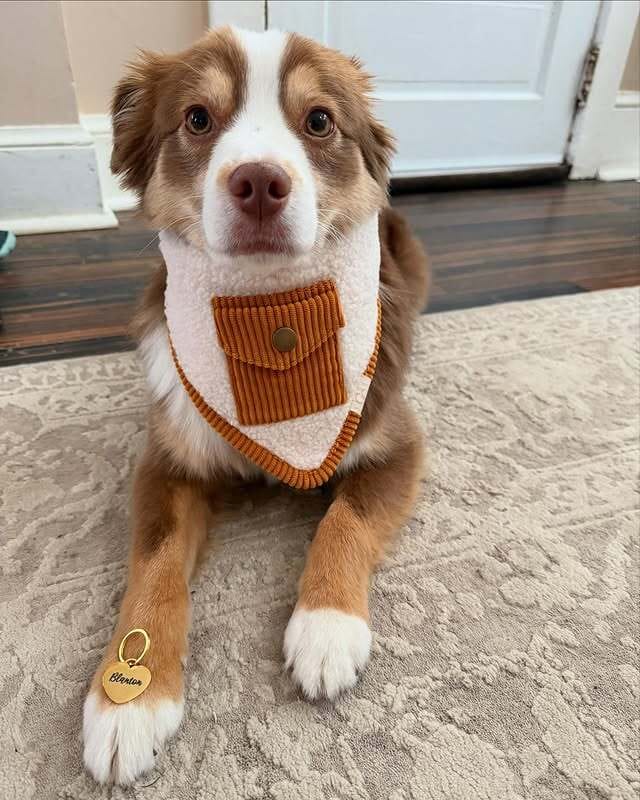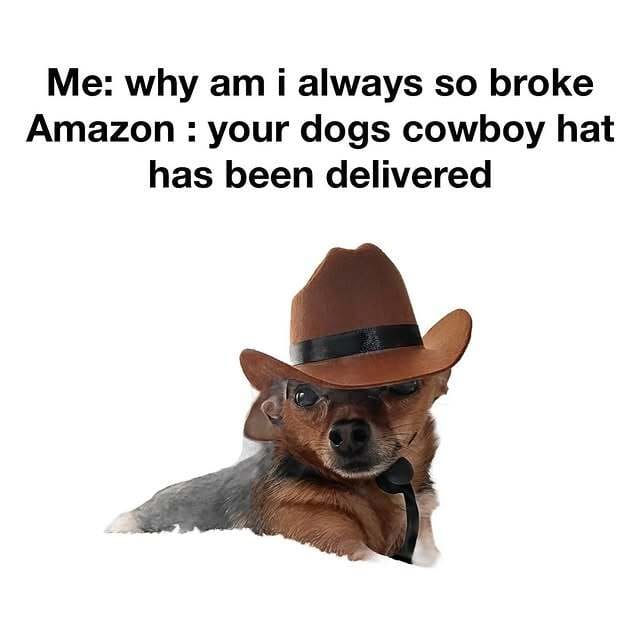Your daily dose of doggy goodness!
Every day, we celebrate our shared love of dogs and hopefully brighten your day. Enjoy!
Dog of the Day: Blanton!
Meme of the day: Sometimes pups need accessories!
America’s Animal Rescue Giveaway!
Get ready to wag your tails because I Love Every Dog is amplifying the love for our four-legged friends by celebrating the incredible heroes who dedicate their lives to saving them! In an exciting new initiative, we're partnering with Animal Actions to honor the vital work of animal rescues. We'll be donating up to $10,000 to a deserving animal rescue chosen by a random draw. Imagine the impact that could have on countless lives!
The Curious Case of the Canine Reverse Sneeze
Has your dog ever made a sudden, alarming, honking, snorting sound that leaves you wondering if they're choking or having some kind of respiratory emergency? If so, you've likely witnessed a "reverse sneeze" – a common, though often startling, canine phenomenon. While it sounds dramatic, it's almost always harmless. But what exactly is happening when your beloved Fido goes into this peculiar reverse-sneeze fit? Let's sniff out the details!

Not a Sneeze, But a Sniff in Reverse!
To understand the reverse sneeze, it helps to first think about a regular sneeze. A sneeze is a forceful expulsion of air through the nose and mouth, designed to clear irritants from the upper respiratory tract. It's an involuntary reflex.
A reverse sneeze, medically known as paroxysmal respiration, is essentially the opposite. Instead of pushing air out, your dog is rapidly and forcefully inhaling air inwards through their nose. This often creates that distinctive snorting or honking sound. Imagine your dog trying to quickly and deeply inhale something that's irritating their nasal passages or throat, and you're pretty close to understanding the mechanism.
What Triggers This Peculiar Performance?
Just like a regular sneeze, a reverse sneeze is usually triggered by an irritant or something stimulating the back of the throat or nasal passages. Some common culprits include:
Allergens: Pollen, dust mites, mold spores, or even certain food allergens can irritate the respiratory system, leading to a reverse sneeze.
Irritants in the Air: Perfumes, cleaning products, smoke, or even sudden temperature changes can trigger an episode.
Excitement or Over-stimulation: Sometimes, simply getting too excited during playtime or upon greeting can cause a reverse sneeze. The rapid breathing associated with excitement can stimulate the soft palate.
Post-Nasal Drip: If your dog has a mild cold or allergies, mucus dripping down the back of their throat can be an irritant.
Eating or Drinking Too Fast: Sometimes, food or water can irritate the pharynx, leading to a reverse sneeze as your dog tries to clear it.
Leash Pulling: Pressure on the throat from a collar can sometimes initiate a reverse sneeze, especially in smaller breeds.
Anatomical Factors: Brachycephalic (short-nosed) breeds like Pugs, Bulldogs, and Boxers are more prone to reverse sneezing due to their elongated soft palates and narrower nostrils, which can more easily become irritated or cause partial airway obstruction.
When to Worry (and When Not To!)
The good news is that in the vast majority of cases, a reverse sneeze is benign and self-limiting. An episode typically lasts only a few seconds to a minute or two, and your dog will usually return to normal as if nothing happened.
However, it's always wise to be observant. While rare, persistent or very frequent reverse sneezing, especially if accompanied by other symptoms like nasal discharge, coughing, lethargy, or difficulty breathing, could indicate a more serious underlying issue. These might include:
Foreign object in the nasal passages: Grass seeds or other small objects can get lodged in the nose.
Nasal mites: Tiny parasites that can irritate the nasal passages.
Upper respiratory infections: Though less common, infections can cause irritation.
Polyps or tumors: Very rarely, growths in the nasal passages or throat could be a cause.
If you're ever concerned, or if the reverse sneezing is becoming more frequent or severe, a visit to your veterinarian is always a good idea to rule out any other conditions.
What Can You Do During an Episode?
Most of the time, the best thing you can do during a reverse sneeze is nothing at all. Panicking can distress your dog further. Instead:
Stay Calm: Your calm demeanor will help your dog stay calm.
Gently Massage the Throat: Some owners find that gently stroking or massaging their dog's throat can help to interrupt the spasm.
Briefly Cover Nostrils: Very briefly covering their nostrils for a second or two (forcing them to swallow) can sometimes help.
Offer a Distraction: Sometimes, offering a treat or calling their name can help them swallow and clear the irritation.
The Takeaway
The canine reverse sneeze, while startling, is usually just a quirky, harmless reflex. It's your dog's way of clearing an irritant from their nasal passages, much like we might cough or sneeze. So, the next time your furry friend performs their dramatic reverse-sneeze routine, you can rest easy knowing it's just a normal (albeit noisy) part of being a dog!
Science Links Mitochondria & Muscle Strength
As we age, our muscles naturally lose mass, strength, and functionality, which can lead to fatigue and weakness beginning as early as our 30s. Recent studies indicate that our mitochondria—the cellular powerhouses that generate 90% of our energy—play a crucial role in this decline, contributing to reduced muscle function as we age. A new way to support and improve muscle health as we age, Mitopure® by Timeline is clinically shown to meaningfully boost our mitochondrial health to improve muscle strength and endurance, without any change in exercise required. Ready to feel stronger, for longer with Mitopure? [NEWSLETTER] readers can take 30% off their first month with code 30NEWSLETTER for a limited time. While supplies last.
Dog Food and Supplement Recalls
Here are the recent recalls and advisories:
Savage Pet - Cat Food Chicken for potential bird flu exposure
Wild Coast Raw - Frozen Boneless Free Range Chicken Formula raw pet food for cats for possible bird flu exposure.
Blue Ridge Beef - Natural Mix for potential salmonella.
The Smile Section
Family Photo of the Day:
Oliver Barkley!

We want to feature your pup!
We want to share your pup with our pack. Email us your favorite doggy pic or video with your pup’s name, and we'll try to feature it as a family photo in one of our upcoming newsletters or on our Facebook page.
Interested in reaching our audience?
Like newsletters?
Here are some newsletters our readers also enjoy:
Share our newsletter with your friends!
We’ll donate on your behalf!
🐶 Refer 10 people: We will donate a box of treats to an animal rescue 🐶
🐶 Refer 50 people: We will donate a bag of dog food to an animal rescue 🐶
🛏 Refer 100 people: We will donate a dog bed to an animal rescue 🛏
{{rp_personalized_text}}




